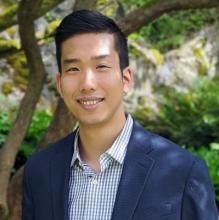Gordon Tao
Why did you decide to pursue a graduate degree?
Having completed my Master's degree at McGill University and taken a short break from academia, I realized I'm really at my best when I'm working towards addressing big problems. I remained committed to the notion that games have the potential to support healthy living in our everyday lives, especially for those living with long-term health conditions. Ultimately, enabling and uplifting people to truly flourish in their lives is tremendously important to me. Research through graduate school is an excellent way to develop my capacity to impact people on a larger scale and in a personally rewarding way.
Why did you decide to study at UBC?
UBC is an ideal base for me to pursue my doctoral degree, as it offers a superb combination of academic resources, clinical and community involvement, and industry connections. I have enjoyed opportunities to connect with multiple research disciplines related to assistive technologies, including human-computer interaction, engineering, and digital design. As a research institute, UBC is well integrated with local hospitals and rehabilitation centers. As well, Vancouver is host to a thriving digital technology and game development industry environment.
What is it specifically, that your program offers, that attracted you?
The rehabilitation sciences program stood out to me for its diverse and accomplished faculty, as well as a highly collaborative research environment. In particular, I was most excited to work with Dr. William C. Miller as my supervisor. His expertise in the fields of assistive technology, mobility, and exercise gaming aligned well with my interests. Moreover, his experience in a wide range of research positions at the national and international levels was exactly what I was looking for. Finally, Dr. Miller is a seasoned mentor whose guidance has and continues to elevate my academic and professional development.
What was the best surprise about UBC or life in Vancouver?
Having grown up in Vancouver, it's been surprising how much I find myself rediscovering the place. It's a constantly evolving environment with new challenges and new solutions. And the natural environment never gets old. There's always a new spot to check out!
What do you see as your biggest challenge(s) in your future career?
Navigating to a position where I can continue working in research while also having a role in development at the industry level will be challenging. However, there is also a lot of excitement in bridging that gap between academia and industry. As games become more normalized as a facet of daily life, I anticipate new and surprising ways with which we can use game design to support healthy living. Being at the nexus of these developments will be truly worthwhile.
What aspects of your life or career before now have best prepared you for your UBC graduate program?
My undergraduate training at Queen's University and graduate training at McGill University certainly provided me a firm foundation in conducting rigorous and impactful research. And this trajectory has been largely informed by a very transdisciplinary curiosity; I've always been excited about developments in various fields and how they might translate over to different fields. As well, my volunteer experiences both abroad and in Canada have kept me grounded in the human contexts for which we do research in health sciences.
What do you like to do for fun or relaxation?
Vancouver staples of hiking and beach time! As a graduate student, it's important to hold onto your creative outlets. For me, I love to cook--it's a nice small scale project you can complete AND eat! Considering my research area, I also like a good game here and there.
What advice do you have for new graduate students?
There is plenty of excellent advice to receive on being a graduate student, from your supervisor to your peers to UBC resources. As you consider this advice, keep in mind your strengths and limitations, and be aware of what aligns with your values.
